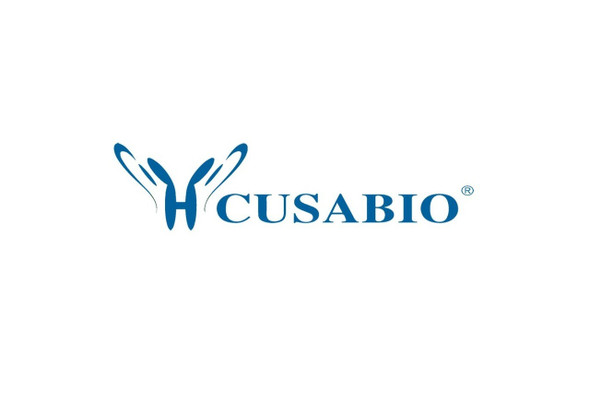Cusabio Polyclonal Antibodies
PCNA Antibody, Biotin conjugated | CSB-PA01567D0Rb
- SKU:
- CSB-PA01567D0Rb
- Availability:
- 3 to 7 Working Days
Description
PCNA Antibody, Biotin conjugated | CSB-PA01567D0Rb | Cusabio
PCNA Antibody, Biotin conjugated is Available at Gentaur Genprice with the fastest delivery.
Online Order Payment is possible or send quotation to info@gentaur.com.
Product Type: Polyclonal Antibody
Target Names: PCNA
Aliases: Proliferating cell nuclear antigen (PCNA) (Cyclin), PCNA
Background: Auxiliary protein of DNA polymerase delta and is involved in the control of eukaryotic DNA replication by increasing the polymerase's processibility during elongation of the leading strand. Induces a robust stimulatory effect on the 3'-5' exonuclease and 3'-phosphodiesterase, but not apurinic-apyrimidinic (AP) endonuclease, APEX2 activities. Has to be loaded onto DNA in order to be able to stimulate APEX2. Plays a key role in DNA damage response (DDR) by being conveniently positioned at the replication fork to coordinate DNA replication with DNA repair and DNA damage tolerance pathways (PubMed:24939902) . Acts as a loading platform to recruit DDR proteins that allow completion of DNA replication after DNA damage and promote postreplication repair: Monoubiquitinated PCNA leads to recruitment of translesion (TLS) polymerases, while 'Lys-63'-linked polyubiquitination of PCNA is involved in error-free pathway and employs recombination mechanisms to synthesize across the lesion.
Isotype: IgG
Conjugate: Biotin
Clonality: Polyclonal
Uniport ID: P12004
Host Species: Rabbit
Species Reactivity: Human
Immunogen: Recombinant Human Proliferating cell nuclear antigen protein (1-261AA)
Immunogen Species: Human
Applications: ELISA
Tested Applications: ELISA
Purification Method: >95%, Protein G purified
Dilution Ratio1:
Dilution Ratio2:
Dilution Ratio3:
Dilution Ratio4:
Dilution Ratio5:
Dilution Ratio6:
Buffer: Preservative: 0.03% Proclin 300
Constituents: 50% Glycerol, 0.01M PBS, PH 7.4
Form: Liquid
Storage: Upon receipt, store at -20°C or -80°C. Avoid repeated freeze.
Initial Research Areas: Cell Biology
Research Areas: Isotype Loading Controls;Epigenetics & Nuclear Signaling;Cancer;Cell biology;Tags & Cell Markers






